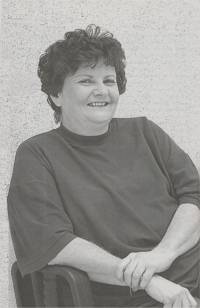"Snapshots of My Early Life"

"The brave writers whose work is represented in this volume have acted in good faith, faced their demons, stayed the course, and revised relentlessly. And in taking on the subject of themselves-making themselves vulnerable to the unseen reader-they have exchanged powerlessness for the power that comes with self-awareness."--Wally Lamb
These powerful stories, testaments, hit us on all levels: we can't escape the power of their story, Let's reflect on anything and everything that comes to us as a result of reading them, INCLUDING the art of writing them.
1. Wally Lamb begins his introduction explaining what goes on in editing, quoting different authors on the art of writing, and lists several techniques the authors in this book may have used. Are you familiar with any of these Writing Techniques? Let's keep an eye out for particularly good examples of the writer's craft.
2. Diane Bartholomew has written one of the most moving and powerful stories in the book. Why do you think Wally Lamb chose to end the book with this particular essay? What is your reaction to this carefully written story of abuse, incest and pain? 3. "Mother always taught us to work as hard as we could at forgiving people because it's always the right thing to do." (page 278). Is forgiveness always the right thing to do?
How do the endings of each chapter or "snapshot" illustrate one of the themes of the essay? 4."At least when Dad hit me, I got noticed... If I do something I'm not supposed to, maybe I won't be invisible." (Page 281)
"Mr. Peterson hasn't paddled me. He doesn't love me--doesn't care one little bit about teaching me a lesson. I haven't mattered to him all year long." (Page 283)..."What does Diane equate with love and attention? Why then is the loss of her father devastating to the family? 5. Why did her mother get Katie and Diane out of bed to "trap" Dad at 4:30 in the morning?
6."Hello, Dad, and good-bye. Good riddance...I wish I'd brought a hat pin to jab you with--to make sure you're really, truly dead.
Then I'll know you can't hurt us anymore, Dad.
Then I'll know I'm safe." ..."Then, without warning, tears spill from my eyes, too. But don't mistunderstand, Dad, I'm weeping not from sadness but from relief. " (page 332).Did this reaction surprise you? How does it tie in with Diane's mother's believe that forgiveness is always the right thing to do? Should Diane have forgiven her father? Would you have? 7. What are some of the elements in this story that make the main character believable and cause the reader empathy?
© SeniorLearn. All rights reserved.
Contact: webmaster@seniorlearn.org